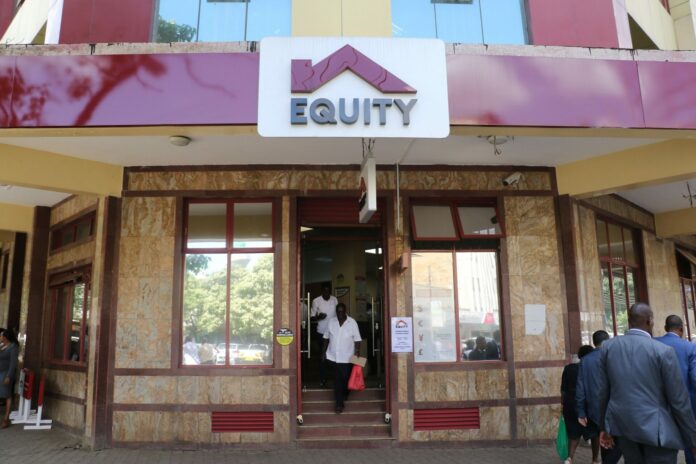Equity Bank will start giving loans at interest rates of up to 18.5 per cent from January 2023.
This comes a few months after the lender received the green light from the Central Bank of Kenya to start pricing its loans based on level of customer risk.
Equity says that the lowest it will lend will be at 13 per cent, putting its range between 13 and 18.5 per cent.
“Interest on loans will now be based on the risk of the client. We are using sovereign risk as the base, then adding the risk of the individual sector and then within the sector the specific client risk and then we add operational costs,” Equity Bank chief executive officer James Mwangi said.
“So instead of the previous [pricing model] where we had loan appraisal fees, and all the rest, we are now saying here is one rate of interest and it is annualized and on reducing balances. We have simplified and removed the fees and combined the rate into one based on the sovereign risk.”
The bank said that small businesses will get its loans at between 14 percent and 16 percent while unsecured loans will attract the highest rate.
“There are corporates like the blue chip firms which will be able to get as low as the sovereign rates. those with higher risk will go all the way to 16 percent, then there is the SMEs from 14 percent to 16 percent. The unsecured individual lending micro, small and medium enterprises from 16 percent to 18 percent,” said Mwangi.
Dr. Mwangi said that the bank has maintained low interest rates in a bid to help its customers beat the economic shocks that came from the 2020 pandemic.
“So far we have maintained our interest to a maximum of 13.5 per cent simply because we wanted to help customers recover fully. As this environment changes —and interest rates have gone up significantly globally because of inflation — we will now activate risk-based pricing,” said Dr. Mwangi.
In December 2021, the Central Bank of Kenya was reported to the International Monetary Fund by local bank chief executive officers. The bank CEOs reported CBK to the IMF for refusing to allow them to increase cost of loans.
“Banks consider that approvals could be expedited. Banks’ credit pricing models require approval by the CBK, and banks must justify charging higher rates to customers presenting higher credit risks,” the IMF said.
Kenyan pastor in US making millions from Kajiado onion farm, Los Angeles businesses
The local executives said that while the CBK had asked banks to submit loan pricing formula after the lifting of interest rates cap on November 7, 2019, the CBK had failed to approve any of the submitted formulas.
This had in turn forced local lenders to continue giving loans within the same rates as during the interest rates cap era. For example, the lending rates averaged 12.38 percent in November 2019 when the rate cap was repealed with the Central Bank Rate (CBR) then at 8.5 percent.
In October 2021, the lending rates averaged 12.12 percent.
The banks further alleged that the delay in moving to risk-based lending has forced many of them to deepen investment in government securities and restrict lending to high-quality customers with a lower risk of default.
“With an ample capital position and strong deposit growth, banks are positioned to extend credit to the economy to support the recovery, though they may face some headwinds. Banks’ holdings of government securities stand at a relatively high 31 percent of assets and are expected to rise further in the coming year,” the IMF said.









